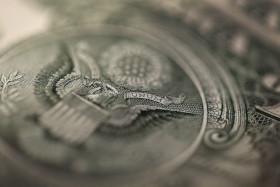The US dollar demonstrated a rather good performance in January thanks to the risk aversion caused by the Wuhan coronavirus. But what to expect from the greenback during the first week of February and what factors will be driving it?
The week will be full of important events in the United States. One of them will be Monday’s Iowa caucuses, which will help to decide candidates for the US presidential election. While Donald Trump will almost certainly be a candidate from the Republicans, the candidate from the Democrats is still uncertain, and today’s caucuses may help things to become clearer.
Also on Monday, both Markit and the Institute for Supply Management will release their manufacturing reports. Analysts predicted that the final estimate from Markit will show a reading of 51.7 in January, the same as in the preliminary estimate and down from 52.4 in December. The report from the ISM is expected to show an increase from 47.2% to 48.5%. But being below the neutral 50.0% level, the index would still suggest a contraction of the industry.
On Wednesday, Automatic Data Processing will release an employment report. Markets expect it to show an increase of 150,000 in January, down from 202,000 in December.
Also on Wednesday, both Markit and the ISM will release their non-manufacturing PMIs. Both are indicators are expected to stay about unchanged firmly above the 50.0 mark.
And perhaps the most important piece of news will be the release of nonfarm payrolls on Friday. Economists predicted that the report will show an increase of employment by 160,000 jobs in January, up from 145,000 in the preceding month. The unemployment rate should stay unchanged at 3.5%. And wage inflation is expected to accelerate from 0.1% to 0.3%.
The news about the virus in China will also continue to affect markets. Unless the Asian nation will be able to contain the further spread of the infection, markets will remain in a risk-off mode, supporting the upward momentum of safer currencies, including the greenback.
Forex Crunch issued bullish forecasts for the US dollar against the euro and the Australian and Canadian dollars, neutral versus the Great Britain pound, and bearish against the Japanese yen — the currency that also profits from risk aversion.
DailyFX was neutral on the greenback, arguing that the outlook for at least one interest rate cut from the Federal Reserve this year will balance out a bullish impact of the coronavirus scare on the currency.
If you have any questions, comments, or opinions regarding the US Dollar, feel free to post them using the commentary form below.
US Dollar Forecast of February 3-7, 2020
